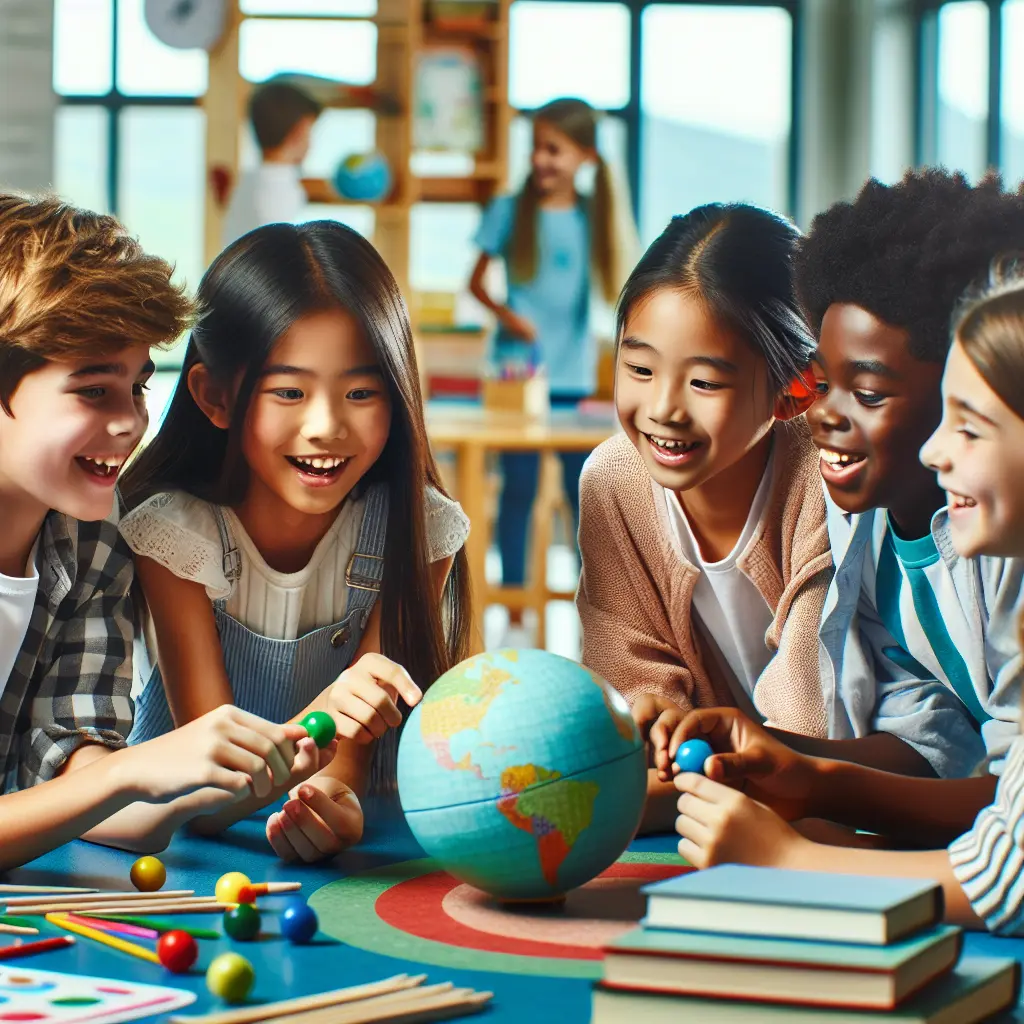
Promoting Positive Peer Relationships in School-aged Children: A Comprehensive Approach
In the complex world of education, fostering positive peer relationships among school-aged children is pivotal for holistic development. The significance of peer relationships in school-aged children cannot be overstated as these interactions lay the groundwork for a range of essential skills, from social skills development to emotional intelligence.
The Foundation of Social Skills Development
At the heart of social development in school-aged children is the acquisition of robust social skills. These skills not only aid in promoting positive peer interactions but are crucial in building friendships in school. Research shows that children who engage effectively with their peers tend to exhibit higher self-esteem and perform better academically. This development is facilitated by structured activities that encourage interaction, such as group projects and team sports, which foster communication skills for children and teamwork skills in education.
Addressing Conflict: Resolution Strategies for Children
Conflict is inevitable wherever there are interactions. However, early intervention focusing on conflict resolution for children can turn these challenges into valuable learning opportunities. Techniques such as role-playing or story-telling can help children understand and manage conflicts before they escalate, thus enhancing their emotional intelligence.
Peer Support in Education
The role of peer support in education is increasingly recognized as a buffer against the stresses of school life. Programs that pair younger students with older mentors can lead to significant improvements in confidence, academic performance, and emotional well-being. The Franciscan Health initiative in offering special First Aid courses is a prime example of how educational institutions can equip children with practical skills while enhancing their capacity for empathy and support within peer groups (Franciscan Health).
Bullying: Implementing Anti-bullying Strategies
With the rise of both physical and cyberbullying, implementing effective anti-bullying strategies in schools is essential. These programs should not only focus on preventing bullying behaviors but also on creating inclusive classroom environments where all children feel safe and valued. Recent legislative changes, such as the decision to allow headteachers to ban mobile phones in schools, underline the ongoing efforts to create more focused and respectful learning environments (BBC News).
The Power of Inclusive Education
Inclusive classroom environments are about more than just physical inclusivity. They encompass an ethos where every child’s voice is heard and valued, irrespective of their background or abilities. This inclusivity extends to social events, extracurricular activities, and everyday classroom interactions, which are crucial for social development in school-aged children.
The Impact of External Influences
Recent global events have underscored the importance of maintaining educational continuity and support. For instance, UNESCO’s report on the deprivation of education for 1.4 million Afghan girls highlights a critical crisis (UNESCO). Such scenarios starkly emphasize the need for international focus on education as a fundamental right.
Enhancing Social Interaction Through Emotional Intelligence
Teaching emotional intelligence in children goes hand-in-hand with enhancing social interaction in schools. When children learn to manage their own emotions, they are better equipped to understand and empathize with others, thereby fostering empathy in children. These skills are critical not only in personal relationships but also as children grow into adults and enter a globally interconnected world.
Peer Group Influence and Its Management
The influence of peer groups significantly shapes children’s behavior and attitudes towards learning. Positive peer group influence can encourage healthy competition and support academic and social growth. Schools can cultivate such environments by encouraging peer-led activities and leadership roles that promote positive values and behaviors.
Global Perspectives and Local Actions
While fostering positive peer relationships locally, it's also essential to draw lessons from global incidents that affect children’s views and behaviors around the world. For instance, the brutal incident in Kolkata not only triggered protests but also highlighted the critical need for safety and respect within communities (The Times of India). Such events can be discussed in older classrooms to enhance students' understanding of societal issues and the importance of respect and safety in all relationships.
Conclusion
Building a foundation of strong peer relationships among school-aged children is an investment in their future as well-rounded, empathetic individuals. From enhancing social interactions to teaching conflict resolution and empathy, every step taken enriches their educational journey and prepares them for diverse social landscapes.
As we continue to nurture these young minds, let us remember that every interaction, every lesson, and every challenge is an opportunity to teach them about respect, cooperation, and kindness. Let’s commit ourselves to create educational environments where every child can thrive socially and academically.
With hope for a brighter, kinder future,
Miranda Fielding